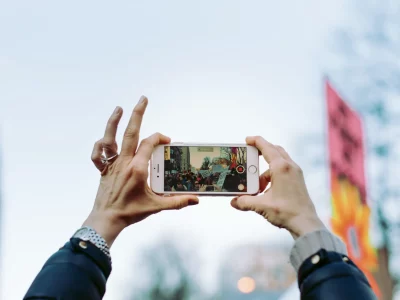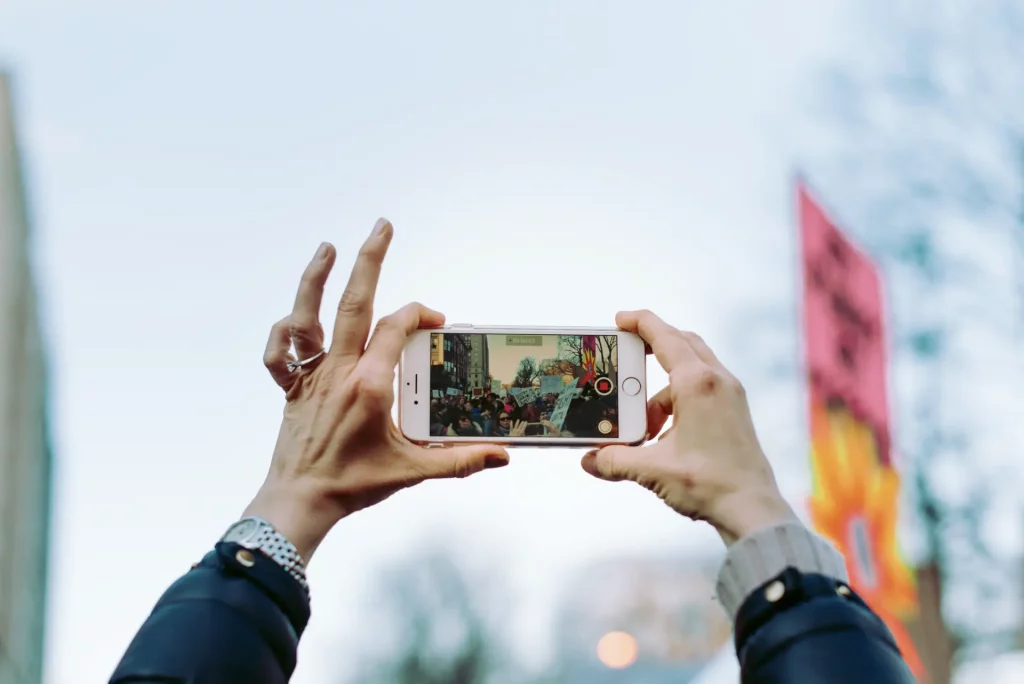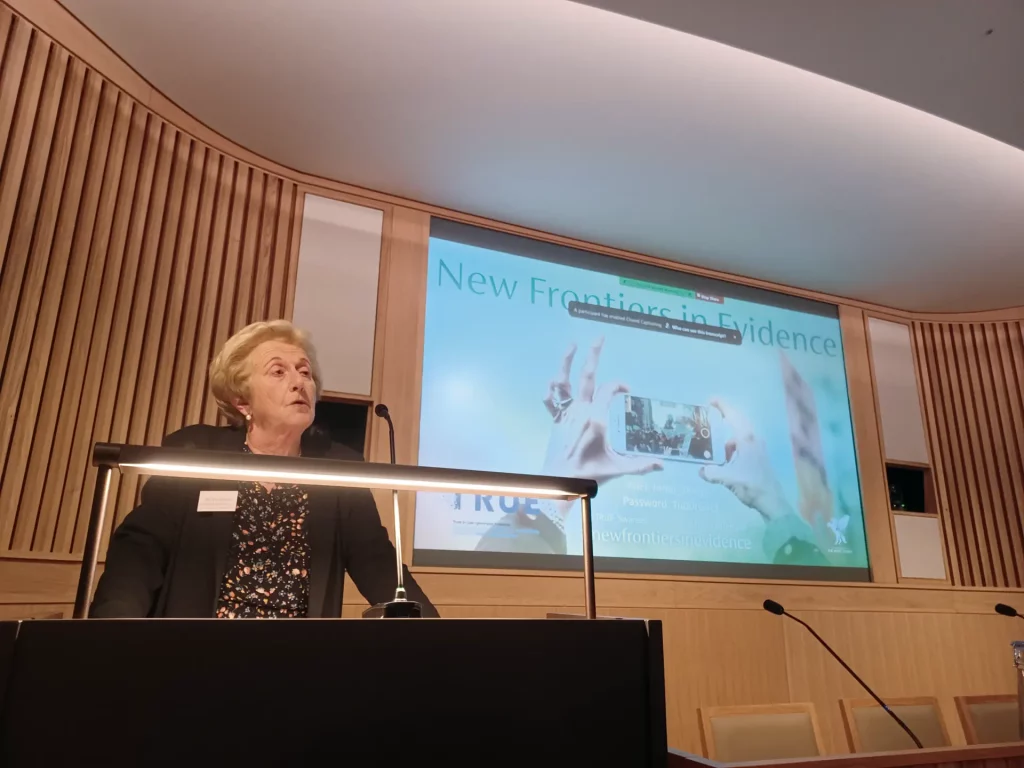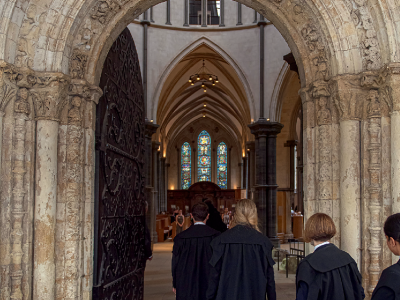

New Frontiers in Evidence
The investigation and prosecution of international crimes – both in domestic courts (pursuant to universal jurisdiction statutes) and on the international plane (for example, before the International Criminal Court [ICC]) – has historically been constrained by systemic and institutional limitations on investigators’ and, consequently, prosecutors’ capacities to gather evidence in states in which crimes are alleged to have occurred. These limitations flow from the inaccessibility of alleged crime sites to investigators in states that decline to cooperate with international investigations, as well as a structural reality in which international criminal tribunals possess no police force of their own. International criminal tribunals have, therefore, operated in a paradigm which has relied on states’ cooperation to gather evidence for the successful prosecution of international crimes.
The advancement of internet, telecommunications, and GPS technologies has for some time been recognised as having the potential to disrupt this paradigm. Content uploaded to the internet by individual users (so-called ‘user-generated evidence’), together with other sources of online content (such as press reports) (together ‘open-source information’), provide investigators with new opportunities to pursue investigations in the absence of a physical footprint in situation countries, as well as in the absence of states’ cooperation in those locations.

The promise presented by these developments, however, does not come without risks and fresh constraints of its own. Open-source information, particularly in the form of audio-visual user-generated evidence uploaded to the internet by individuals whose identity may be unknown, presents hurdles to prosecutors seeking to rely on such material as evidence. This is not least because, in the absence of a witness to give evidence as to the authenticity and reliability of the content, the risk of its manipulation (for instance through the deployment of deepfake technologies) renders its authenticity and reliability and, consequently, its admissibility as evidence, open to challenge.

On 25 November 2023, the Inn organised and hosted, in collaboration with the TRUE Project, a one-day symposium that presented the first comprehensive examination of its kind of the legal and policy issues surrounding these developments. Master Joanna Korner moderated a packed schedule attended by over 100 legal practitioners, investigators and academics.
Master Sue Carr recorded a welcome speech. Eliot Higgins of Bellingcat, an open-source research and analysis platform which has pioneered investigation of open-source information, gave the keynote address. Mr Higgins traced the development of Bellingcat’s use and deployment of open-source information in the investigation of international crimes, and he introduced the symposium to the core techniques of geolocation and chronolocation which facilitate the process of its authentication. Mr Higgins also introduced the risks inherent in reliance on open-source information, including through its manipulation, and his presentation therefore set the tone for the examination of the legal and practical issues presented by these developments which were explored in further detail throughout the day.
Master Korner chaired the first panel session on the admission and evaluation of user-generated evidence. Dr Jonathan Hak KC presentation expanded on the risks presented by manipulation of open-source information through the generation of synthetic imagery, for instance developed by artificial intelligence image generators and deepfakes. Master McDermott Rees and Dr Alice Liefgreen developed these themes by presenting insights from the TRUE Project on the core research question of how deepfakes and related technological advances have impacted on trust in user-generated evidence, and what that means for user-generated evidence in human rights accountability processes. Through mock trial scenarios, online studies, case law analysis and engagement with practitioners, the TRUE Project’s findings presented a balanced picture finding that, on the one hand, although there is no ‘silver bullet’ available to cure the risks of manipulation and abuse of open-source information, these risks can be mitigated through effective methodologies of source, technical and content analysis.

Dr Micheál Ó Floinn presented on the presumption(s) of reliability under English law of evidence produced by computers in the context of digital evidence, a topic which the discussion demonstrated (in Dr Ó Floinn’s view, shared by this author) to be an area potentially ripe for law reform.
Master McDermott Rees chaired the second panel session on ethics and practice in the collection and preservation of user-generated and open-source information. Raquel Vazquez Llorente (WITNESS) provided participants with an introduction to the modalities for securing access to data through the European Digital Services Act. Andrew Finkelma (Meta, formerly Facebook) offered insights into obtaining disclosure from Meta. Dr Lambros Fatsis (City University of London) presented on the use of rap music as evidence, particularly in cases relating to gang violence. David Hassan (Office of the Prosecutor, ICC) introduced the OTPLink System for the submission of user-generated material. Following the luncheon adjournment, participants were presented with a choice of attending one of three panel workshops – on developments on synthetic media and generative AI, advocacy techniques concerning open-source material, and verification techniques.
The third session provided participants with a comparative analysis of the techniques, methodologies, and best practices employed and promoted by civil society and academic stakeholders operating in the field. Ben Strick (Centre for Information Resilience) described manual and automated processes employed in the collection and preservation of user-generated evidence by the Centre for Information Resilience. Dr Alexa Koenig (University of California, Berkeley) presented on the development of the landmark Berkeley Protocol on Digital Open-Source Investigations, and Siobhán Allen described the work of the Global Legal Action Network (GLAN) in developing key admissibility and evaluation considerations. Nick Waters (Bellingcat) presented real world case studies on authenticating user-generated evidence deriving from the Al-Werfalli Case at the ICC, and the international armed conflict in Ukraine. The session provided practitioners with tools to deploy when litigating the admissibility and weight to be afforded to user-generated evidence.
The fourth session addressed the presentation of open-source information in Court. Her Excellency Judge Solomy Balungi Bossa (ICC) and His Honour Judge Gumpert KC presented on user-generated and open-source material from the perspective of the international and English benches. Sue Hemming, formerly Head of the Counter Terrorism Division of the CPS, gave the prosecutor’s perspective.
The fifth (and final) session offered participants an opportunity to reflect on mock trial hearings organised by GLAN in which the admissibility and weight of a piece of user-generated video content was litigated in mock sittings of the Crown Court, pursuant to the rules of criminal procedure of England and Wales. Chaired by Master McDermott Rees and interspersed with video of the mock voir dire hearing at which the content’s admissibility was litigated, Master Korner provided the judicial perspective, Joshua Kern provided the prosecution angle, Master Andrew Cayley provided the defence perspective, and Dearbhla Minogue presented from GLAN.
In conclusion, the Inn and the TRUE Project’s ‘New Frontiers in Evidence’ symposium represented a new frontier of its own – a first of its kind forensic examination of a still emerging area of practice with significant potential, but also carrying risk. The symposium received excellent feedback, epitomised in a detailed blog post by Michael Karnavas, experienced defence counsel before the international criminal tribunals, who described the event as “highly informative and enormously useful” in a comprehensive review. The day’s success positions the Inn as a thought leader at the cutting edge of examination of the interaction between emerging digital technologies and best practice in their presentation in international and domestic criminal proceedings.
Joshua Kern
